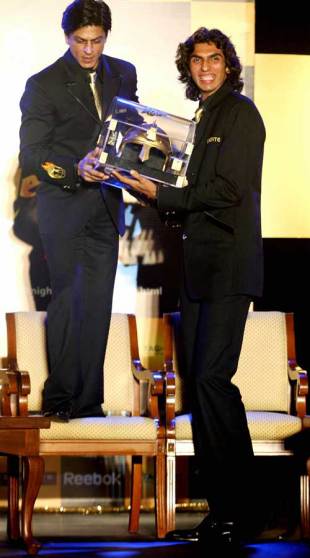
|

Not cricket as we know it: the IPL may be the game's rock n'roll moment
© AFP
|
|
There was a conversation recently on BBC radio during one of England's Tests in New Zealand, between Christopher Martin-Jenkins and Geoff Boycott. It was one of those joyful little asides that the Test Match Special commentary team still specialise in.
Boycott was passing comment on the signing of New Zealand's Ross Taylor by the Bangalore franchise in the IPL. Boycott waxed about what a great signing this was, how Bangalore needed a biffer like Taylor to complement the grafters like Rahul Dravid. At some point during his exposition, Boycott turned to CMJ for affirmation. CMJ's response was indifferent at best. His lack of interest in the IPL was obvious. Boycott might as well have been talking about American football for all the likelihood that his co-commentator was going to engage him in conversation about it.
CMJ's reaction, I would suggest, is pretty typical of English cricket followers, and certainly of the more mature spectator. I would imagine that British Asian cricket punters are more engaged with the revolution, but for the majority of England supporters the IPL is just another acronym that might as well be something to do with the global banking crisis as with cricket.
This might have something to do with the absence of any significant England players (Dimitri Mascarenhas notwithstanding) in the IPL. But it also has a whole lot to do with English cricket's innate conservatism, the sort of kneejerk reaction that Brits have taken centuries to cultivate and for which we are rightly renowned across the globe.
There are two strands to this conservatism. Firstly there is the Fred Trueman-style "what's going off out there?" bewilderment at cricket's modernisation, which extends to fear for the future of Test cricket, and indeed, all forms of "proper" cricket (that is, games played over at least three days in white clothes). I have some sympathy with the Test cricket element of that fear, and indeed that was my first reaction when the full extent of the IPL became apparent: that the Test game would soon be eroded into nothing more than couple of "boutique" or "heritage" series involving Australia, England and India.
The second strand of this conservatism is less rational and more xenophobic. The idea of money running cricket is unpalatable enough but Indian money? Good grief, pour another G&T. This may seem like an extreme view and, for sure, it's not representative of the majority. But in the mainstream British news media, cricket has a frustratingly dysfunctional and outdated image. Whereas football, and all who sail in her, are worshipped with increasingly absurd reverence, cricket is either seen as a bit of a joke (default position is that the England team is rubbish regardless of whether they're actually winning any matches) or as a some sort of emblem of rural England.
I have done a number of TV and radio interviews about the IPL and at no point in any of them was there any real discussion about whether the IPL might possibly be good for cricket or at least whether it might be popular. It was the same old discussions about limited-overs cricket ruining the game with an unhealthy dose of "Crikey, where do these Indian chaps get their money from?" thrown in.
Now, before I start turning intellectual somersaults, I should say that I still have grave doubts about the IPL's benefits for anyone other than for the cash-rich players involved. But only time will tell. It occurred to me, after a conversation with Cricinfo's editor, Sambit Bal, that maybe this was what it was like in the 1950s when your kids started eroding the entire moral value system by listening to Elvis. Not only did the world not end, a whole new art form was born.
Maybe the IPL, and Twenty20 in general, is cricket's rock 'n' roll moment. Maybe it's time for people like me to get with the programme. And just as it's possible to like both Elvis and Mozart, maybe the 20-over game and the 450-over game can co-exist perfectly happily. Let's hope so.
John Stern is editor of The Wisden Cricketer

